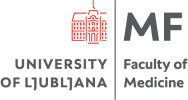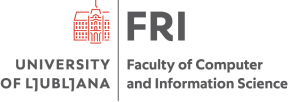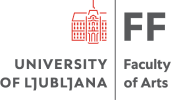Cognitive science
The Middle European interdisciplinary master’s programme in Cognitive Science (MEi:CogSci) is a joint master’s programme offered by the University of Vienna, Comenius University in Bratislava, Eötvös Loránd University and University of Ljubljana. University of Ljubljana offers the MEi:CogSci program as a joint cooperation of four faculties: Medical Faculty, Faculty of Computer and Information Science, Faculty of Arts and Faculty of Education (coordinating faculty).






